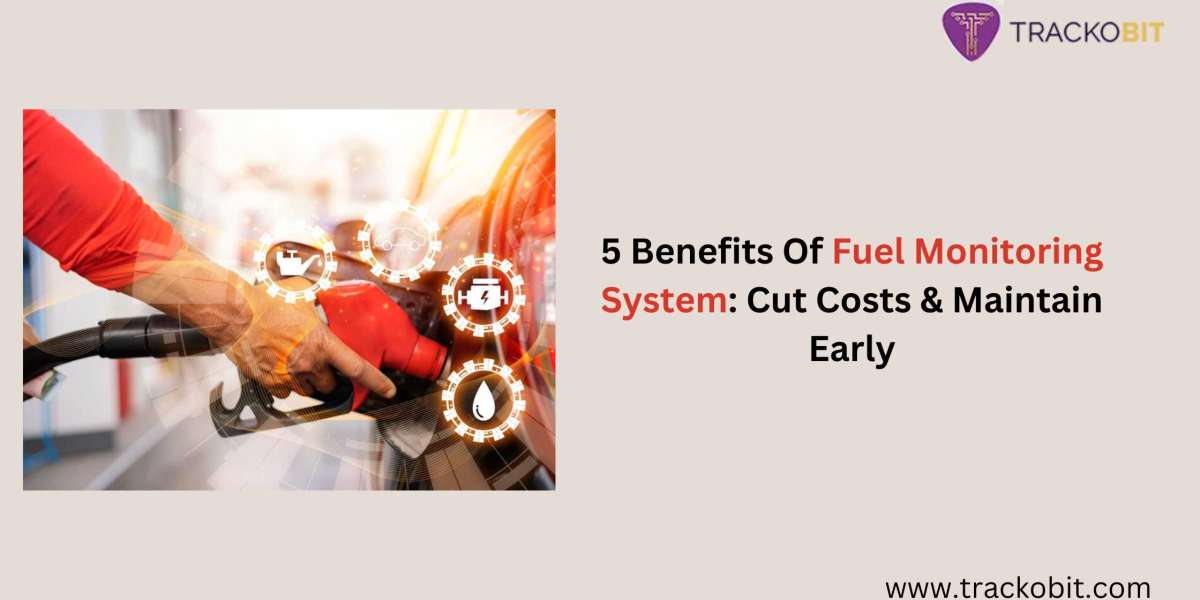It could be drivers getting lost or, worse, vehicles running out of fuel unexpectedly. But, as a fleet manager, it’s your responsibility to manage every aspect of the delivery process. One crucial element is ensuring that your vehicles don’t run out of fuel during a trip. But how can you keep track of fuel usage effectively? The answer lies in the fuel monitoring system.
Keep reading to discover how this process can save you money and help you avoid unexpected maintenance issues.
What Is the Process of Fuel Monitoring?
Fuel monitoring is a systematic approach to tracking the fuel consumption of your fleet vehicles. It is all about recording the amount of fuel each vehicle uses during its trips. Once done, the task is to analyze this data to find patterns or anomalies.
The process begins with setting a baseline by noting how much fuel is typically consumed for specific routes or trips. This data is then compared with actual fuel usage to identify discrepancies.
For instance, if a vehicle consumes more fuel than usual on a routine trip, it could signal an issue like fuel theft. Regular monitoring basically allows you to detect such issues early. It further enables you to take corrective actions before they lead to bigger problems.
Additionally, by understanding the fuel consumption patterns of your fleet, you can optimize routes and reduce overall fuel costs. But how is that actually possible? Well, it is with the help of fuel monitoring software.
Why Do Companies Need to Monitor Fuel?
Fuel monitoring is necessary across various industries, particularly those that rely heavily on fleet operations.
Industries such as logistics, construction, mining, and transportation are prime examples where fuel management plays a crucial role.
- In logistics, timely deliveries are critical. Monitoring fuel usage ensures that vehicles have enough fuel for their trips, reducing the risk of delays.
- For construction and mining companies, heavy machinery often consumes large amounts of fuel. This makes it essential to track usage to manage costs effectively.
- Transportation companies, especially those involved in long-haul trucking, need to monitor fuel. They do so to avoid unexpected stops that could disrupt schedules and increase operational costs.
So yes, in these industries, fuel is one of the largest expenses. And unmonitored fuel usage can lead to significant wastage, driving up costs unnecessarily.
Additionally, without fuel monitoring, companies risk undetected fuel theft, inefficient routes, and poor vehicle maintenance. All these together can lead to higher costs and reduced efficiency. That’s when exactly businesses realized the significance of fuel monitoring solutions.
The Amazing Benefits of Fuel Monitoring
Fuel monitoring offers a plethora of advantages that go beyond simple cost savings.
Definitely, it is a proactive approach that can lead to significant improvements in operational efficiency and vehicle maintenance.
Reduced Fuel Costs Through Efficient Usage
By tracking fuel consumption closely, you can identify inefficiencies in your fleet’s operations. For example, excessive idling, unnecessary detours, and poor driving habits. These all contribute to higher fuel costs. Fuel monitoring allows you to pinpoint these issues and address them. This then leads to more efficient fuel usage and lower overall costs.
Early Detection of Potential Vehicle Issues
Fuel consumption patterns can often reveal underlying vehicle problems. A sudden spike in fuel usage might indicate an issue such as a clogged fuel filter or an engine problem. By catching these issues early through fuel monitoring, you can avoid costly repairs.
Enhanced Route Optimization
Monitoring fuel usage helps in optimizing routes. By analyzing which routes consume more fuel, you can plan more efficient routes that save both time and fuel. This not only reduces costs but also improves delivery times, enhancing customer satisfaction.
Prevention of Fuel Theft
Fuel theft is a major concern for many companies, especially those with large fleets. Fuel monitoring can help detect discrepancies between the fuel purchased and the fuel consumed. This allows you to identify and address potential theft issues overall.
Better Budget Management
With accurate data on fuel usage, you can create more precise budgets and forecasts. This helps in allocating resources more effectively. Ultimately, it ensures that your fleet operates within its fuel budget, reducing the risk of overspending.
Finally, let’s move ahead and discuss the main question!
How Is Fuel Monitoring Possible?
Businesses can adopt different approaches to monitor fuel usage. Yes, you read it correctly. However, the most effective and efficient method is through fuel tracking software.
This technology allows for real-time tracking of fuel consumption, providing you with precise reports on usage. You can set up alerts for fuel refills and drainage, ensuring that any unusual activity is detected immediately.
To be specific, a good fuel monitoring system offers several key features-
- Real-time fuel tracking
- Detailed fuel usage reports
- Alerts for refills and potential fuel theft
As a business leader, you must be wondering which fuel monitoring system is best. Here’s the answer.
Among the many options available, TrackoBit, an online fleet management software, stands out as a comprehensive solution. It offers all these features and is more like fleet route planning software. Thus, if you’re interested in learning more about how TrackoBit can help your business, explore our official website.
Final Words
Fuel monitoring is not just about keeping track of how much fuel your vehicles use! It’s about improving your overall fleet efficiency and reducing operational costs.
By using a robust fuel monitoring system, you can detect issues early, prevent fuel theft, and optimize your routes. This proactive approach leads to significant cost savings and helps maintain your fleet in top condition.
And yes, to take full advantage of fuel monitoring, consider investing in reliable fuel monitoring software like TrackoBit.
It’s an investment that will pay off in both the short and long term. Hope this article helps.








